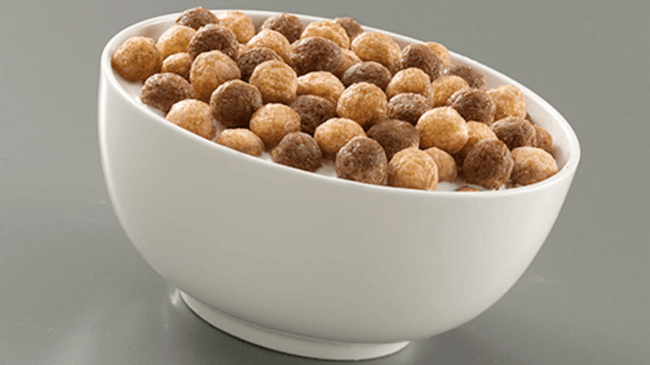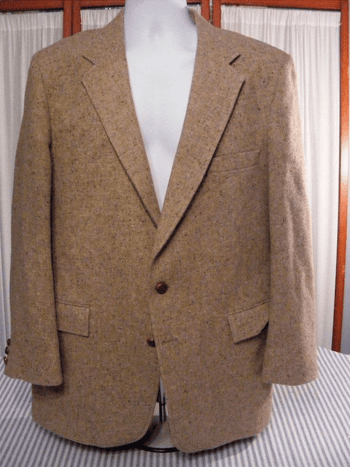10 of the Most (& Least) Successful Brand Extensions to Inspire Your Own
from web site
After watching The Edge of Seventeen, a moving coming-of-age film starring Hailee Steinfeld as Nadine Franklin, a witty yet socially hopeless 17-year old girl who struggles to come to grips with her best (and only) friend dating her golden boy older brother, I was in awe of Steinfeld’s performance.
As fiery and smart as her character was, she was just as insecure and resentful, and the euphoric highs and heartbreaking lows she experienced throughout the movie triggered memories of the wholesome yet painfully awkward moments that high school was chock full of.
Steinfeld is one of the most talented young actresses in Hollywood today, earning a Golden Globe nomination for Best Actress for her performance in The Edge of Seventeen and even an Oscar nomination for Best Supporting Actress for her role in True Grit when she was only 13 years old.
But what amazes me about Steinfeld isn’t her acting prowess. It’s that she’s also just as accomplished as a singer. Steinfeld has collaborated with some of the most popular artists in the music industry, like Zedd, Florida Georgia Line, and Alesso, to produce three hit song that have all reached the Billboard Hot 100 record chart. After a quick search on Spotify, I even discovered that I had already saved these songs on a playlist -- I had no idea she sang them.
Although Steinfeld is mostly known for her acting chops, her singing abilities bolster her esteem as a performer and stretch her brand and reach to more audiences and fans. And just like her venture into music, companies often extend their brand to develop new products in industries that they don’t have any market share in. These initiatives are called brand extensions, and they allow companies to leverage their brand awareness and equity to create more revenue streams.
What separates the best brand extensions from the worst?
Historically, the most successful brand extensions are the ones that closely tie to the company’s flagship product or core brand, like Gerber’s baby clothes and Dole’s frozen fruit bars. By entering tangential markets that can preserve their brand’s unique associations and perceived quality, companies can develop new products that consumers intuitively understand the benefits of, even though they’ve never seen them on a shelf.
On the flip side, a company can also exploit their brand, and, in turn, damage it. If they develop a product in a market that isn’t closely tied to their flagship product or core brand, like Zippo’s perfume for women, companies can attach undesirable associations to their brand, weaken its existing associations, and hurt its established products’ perceived quality.
So whether you’re a SaaS company or a consumer brand thinking about extending your product line, check out our list of the most and least successful brand extensions to help inspire your own.
Brand Extension Examples
- Reese's Puffs Cereal
- Aunt Jemima's Pancake and Waffle Syrup
- Colgate 'sToothbrush
- Honda's Lawn Mowers
- Sunkist's Vitamin C Tablets
- Cadbury's Instant Mashed Potatoes
- Levi's Tailored Classics
- Pillsbury's Frozen Microwave Popcorn
- Samsonite's Outerwear
- Arm & Hammer's Underarm Deodorant Spray
1. Reese’s Puffs Cereal (The Best)

Image Credit: General Mills
Reese’s Puffs was my favorite cereal growing up, so I might be a little biased here. But with all the chocolate-flavored cereal around in the mid-90s, Reese’s Peanut Butter Cup’s entrance into the cereal market was a smart and natural one.
Nowadays, with some aid from their advertising campaigns that highlight how kids can eat their favorite candy for breakfast, Reese’s Puffs has helped General Mills, its conglomerate, capture the second biggest slice of the cold cereal market share.
2. Aunt Jemima's Pancake & Waffle Syrup (The Best)
-15.png?width=400&name=pasted%20image%200%20(1)-15.png)
Image Credit: Walgreens
Aunt Jemima’s pancake and waffle syrup might be the most successful example of a brand extension. Before I wrote this piece, I didn’t even know they started their company selling pancake mix. I honestly thought they only sold syrup.
When you think about it, they extended their brand to the most logical product category possible. I mean can you really eat pancakes or waffles without syrup? It was almost a necessity for Aunt Jemima to produce this complementary good for their flagship product.
3. Colgate's Toothbrush (The Best)
-12.png?width=400&name=pasted%20image%200%20(2)-12.png)
Image Credit: Walgreens
Just like Aunt Jemima’s pancake mix and syrup, Colgate’s toothpaste and toothbrush are complementary goods. But unlike the former example, you literally need a toothbrush to use toothpaste. Otherwise, you can’t brush your teeth.
In my opinion, Colgate’s decision to enter the toothbrush market was a necessity and one of their best moves, helping them secure the third largest slice of the oral care market.
4. Honda's Lawn Mowers (The Best)
-11.png?width=650&name=pasted%20image%200%20(3)-11.png)
Image Credit: Honda
Honda’s line of lawn mowers might not elicit the most enjoyable memories of my childhood, but their entrance and success in a saturated market speaks volumes for a company who is mostly known for selling cars.
By leveraging their expertise in small motors to enter the lawn mower market in 1978, they now boast the seventh largest slice of market share in the global lawn mower industry.
5. Sunkist's Vitamin C Tablets (The Best)
-10.png?width=300&name=pasted%20image%200%20(4)-10.png)
Image Credit: Sunkist Vitamins
Featuring orange juice as their flagship product, Sunkist’s brand has associations with oranges, health, and energy. To both bolster and leverage this association at the same time, Sunkist produced vitamin c tablets that spawned an entire arm of business dedicated to vitamins and supplements.
6. Cadbury's Instant Mashed Potatoes (The Worst)
-6.png?width=450&name=pasted%20image%200%20(5)-6.png)
Image Credit: Geek Goes Vintage
Cadbury is known for making high-end chocolate and candy, so when they started producing low-end food products, like instant mashed potatoes, it’s not surprising to learn that their association with the finest chocolates weakened.
Smash, their instant mashed potato brand, actually reached mainstream success, but it was at the expense of lowering their flagship product’s perceived quality. Cadbury eventually sold Smash in 1986, over 20 years after they introduced their instant mashed potatoes to the world.
7. Levi’s Tailored Classics (The Worst)

Image Credit: Pinterest
When Levi’s introduced their Tailored Classics in the early 1980s, they already owned a large share of their target market, so they wanted to enter some new markets to sustain their high growth rate.
One of these markets was men’s suits, but since their brand was heavily associated with a casual, rugged, and outdoorsy lifestyle, Levi’s new product line conflicted with their core identity and failed to catch on.
Consumers trusted Levi’s to produce durable clothing that could endure the wrath of mother nature, but, for that very reason, they didn't trust them to produce high-end tailored suits.
8. Pillsbury's Frozen Microwave Popcorn (The Worst)
-3.png?width=650&name=pasted%20image%200%20(6)-3.png)
Image Credit: YouTube
Even though Pillsbury is known for producing foodstuffs, their frozen microwave popcorn couldn’t compete with Orville Redenbacher or General Mills’ Pop Secret because their product positioning of being “frozen for freshness” didn’t offer enough value. Sure, sticking your popcorn in the freezer is convenient (I guess), but that benefit pales in comparison to enjoying a better-tasting popcorn.
9. Samsonite's Outerwear (The Worst)
.png?width=500&name=pasted%20image%200%20(7).png)
Image Credit: Property Room
While Samsonite’s outwear is more fashionable than Levi’s Tailored Classics, it still suffers from the same exact problem as Levi’s failed product line -- the brand extension doesn’t align with Samsonite’s core identity.
Samsonite is known for making high-end luggage, suitcases, and business bags. So unless they think their flagship product’s elegant traits can transfer to a completely unrelated product line, their venture into the clothing industry could diminish their brand equity. This is most likely the reason Samsonite doesn’t list their outerwear on their website anymore.
10. Arm & Hammer's Underarm Deodorant Spray (The Worst)
.png?width=450&name=pasted%20image%200%20(8).png)
Image Credit: Target
Arm & Hammer has successfully extended its brand from a odor-neutralizing baking soda to laundry detergent, carpet deodorizer, and even cat litter. But one product line that isn’t the best fit for their brand is underarm deodorant spray. Applying a product that shares an ingredient with heavy-duty cleaning supplies to such a sensitive part of the body doesn’t jive well with consumers.
https://www.juliayoung.business/2019/03/10-of-most-least-successful-brand.html
